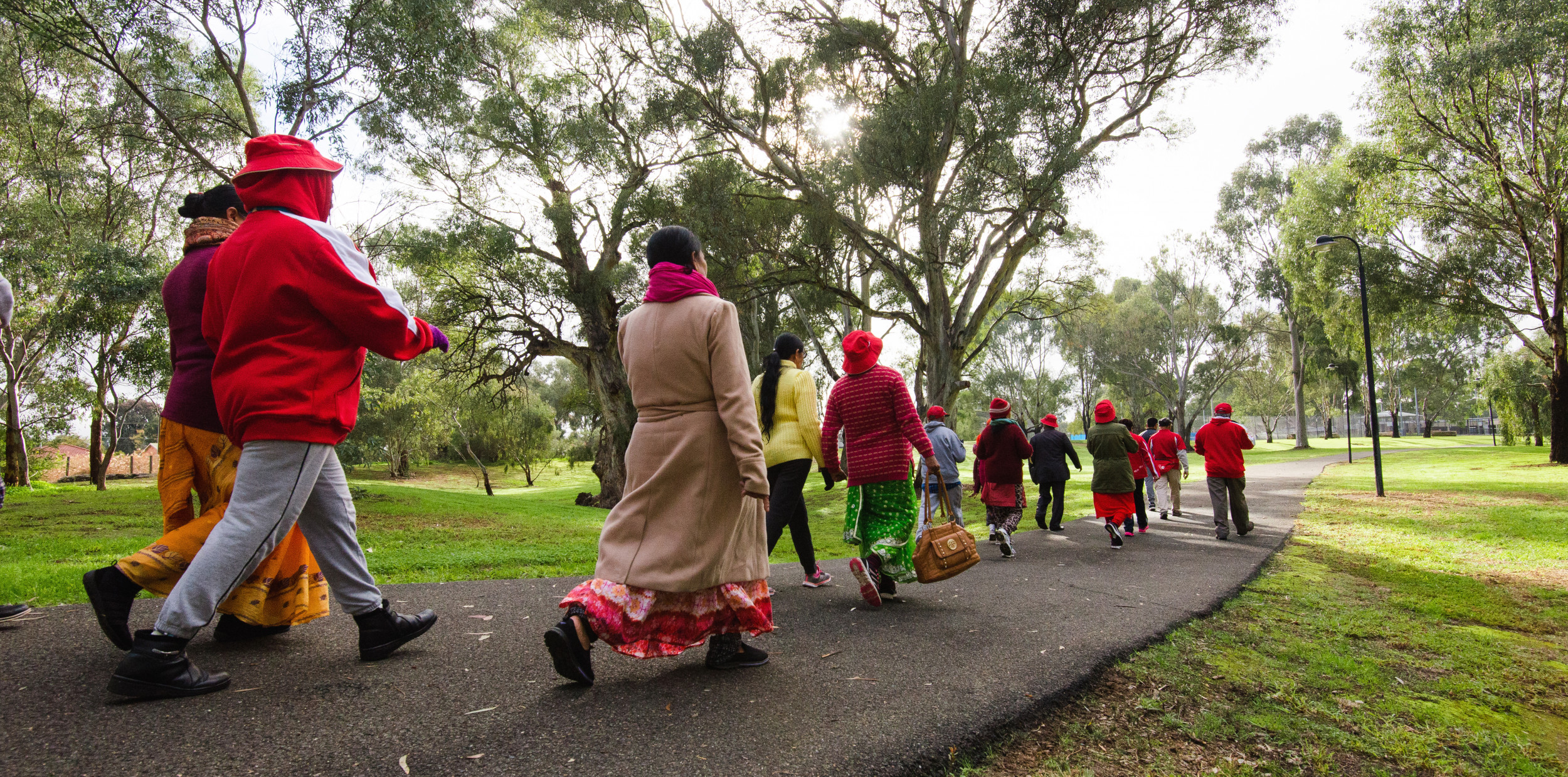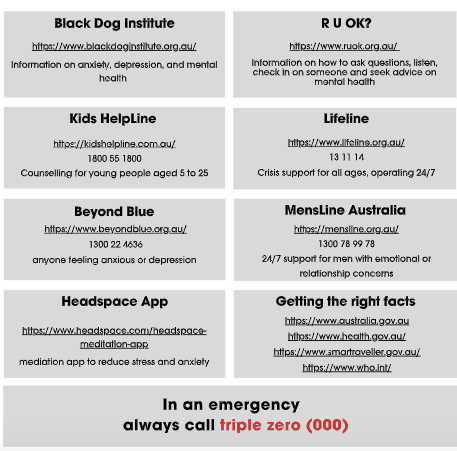
Blog
Want the latest in health and walking news? Check out our blogs below.
Looking after your mental health in social isolation
Widespread media reporting of the coronavirus pandemic, changing daily circumstances and uncertainty about the future can give rise to heightened anxiety.
Whilst anxiety can sometimes be helpful and keep us forward thinking. More often than lately, it can also bring out emotions that we may have not felt before and we find ourselves feeling isolated, emotional and afraid.
As we start facing the prospect of several weeks of social distancing, we have to start establishing our own ways of preserving our mental health at home.
Mental Health Wellness Tips
1. Stick to a routine
Go to sleep and wake up at a reasonable time, write a schedule that is varied and includes time for work as well as self-care.
2. Dress for the social and work life you want
Get showered and dressed in comfortable clothes, wash your face, brush your teeth. Take the time to do a bath or a facial. Put on some bright colors - it is amazing how our dress can impact our mood.
3. Find time to move for at least 30 minutes each day
Try first thing in the morning, or later in the evening, and look for less travelled streets if it’s busy near you. If you are at high-risk or living with those who are highrisk, open the windows, turn on the music and have a dance party! It is amazing how much fresh air can do for spirits.
4. Reach out to others
Try to do FaceTime, Skype, phone calls, texting—connect with other people to seek and provide support for at least 30 minutes a day. Don’t forget to do this for your children as well. Set up virtual playdates with friends daily via FaceTime, Facebook Messenger Kids, Zoom, etc—your kids miss their friends, too!
5. Stay hydrated and eat well
This one may seem obvious, but stress and eating often don’t mix well, and we find ourselves over-indulging, forgetting to eat, and avoiding food. Drink plenty of water, eat some good and nutritious foods, and challenge yourself to learn how to cook something new!
6. Develop a self-care toolkit
This will look different for everyone. A lot of successful self-care strategies involve a sensory component (seven senses: touch, taste, sight, hearing, smell, vestibular (movement) and proprioceptive (comforting pressure). Look for things that give you a sense of comfort and self-kindness. Snuggle in a soft blanket or stuffed animal, indulge in a hot chocolate, reminisce with photos of holidays, chill out with comforting music, breathe lavender or eucalyptus oil, soothe on a swing or rocking chair, or find calm under a weighted blanket. Write in a journal, read an inspirational book, or use a mandala colouring book.
7. Give everyone the benefit of the doubt, and a wide berth
Understand that a lot of cooped up time can bring out the worst in everyone. We will all have moments that are not our best. It is important to move with grace through blow-ups, to not show up to every argument you are invited to, and to not hold grudges and continue disagreements. Everyone is doing the best they can to make it through this.
8. Find your own retreat space
Space is at a premium, particularly with city living. Think through your own separate space for work and for relaxation. For children, help them identify a place where they can go to retreat when stressed. You can make this place cosy by using blankets, pillows, cushions, scarves, beanbags, tents, and “forts”. It is good to know that even when we are on top of each other, we have our own special place to go to be alone.
9. Let go of expectations and perfectionism
We are going to be living with the unprecedented demand of meeting all work deadlines, home-schooling children, running a sterile household, and entertaining yourself and others in confinement. We can get wrapped up in meeting expectations in all domains. Remember that these are scary and unpredictable times - focus instead on finding a balance with your emotional health.
10. Practice radical self-acceptance
We are doing too many things in this moment, under fear and stress. This does not make a formula for excellence. Instead, give yourself what psychologists call “radical self acceptance”: accepting everything about yourself, your current situation, and your life without question, blame, or push-back. You cannot fail at this - there is no roadmap for this, and we are all truly doing the best we can in an impossible situation.
11. Limit social media and COVID conversation, especially around children
Find a few trusted sources that you can check in with consistently, limit it to a few times a day, and set a time limit for yourself on how much you consume (again 30 minutes tops, 2-3 times daily). Keep news and alarming conversations out of earshot from children – remember they see and hear everything.
12. Notice and celebrate the good in the world
There is a lot of scary, negative and overwhelming information to take in regarding this pandemic. There are many positive stories of people sacrificing, donating, and supporting one another in miraculous ways. It is important to counterbalance the heavy information with the hopeful information. Hint: look for #kindnesspandemic if you haven’t already on Facebook, Instagram or Twitter.
13. Help others
Find ways, big and small, to give back to others. Support restaurants with takeaway, offer to grocery shop for others, check in with elderly neighbours. Helping others gives us a sense of agency when things seem out of control.
14. Find something you can control and control the heck out of it
In moments of big uncertainty and overwhelm, control your little corner of the world. Organise your bookshelf, purge your closet, put together that furniture - it helps to anchor and ground us when the bigger things are chaotic.
15. Find a long-term project to dive into
Now is the time to learn how to play the keyboard, put together a huge jigsaw puzzle, start a 15 hour game of Risk, paint a picture, read the Harry Potter series, binge watch an 8-season show, crochet a blanket, or solve a Rubik’s Cube. Find something that will keep you busy, distracted, and engaged to take breaks from what is going on in the outside world.
16. Now is the time to engage in repetitive movements and expressive arts
Research has shown that repetitive movement (knitting, coloring, painting, clay sculpting, jump rope etc) especially left-right movement (walking, drumming, skating, hopping) can be effective at self-soothing and maintaining self-regulation in moments of distress. Our emotional brain is very receptive to the creative arts, and it is a direct portal for release of feeling. Find something creative (sculpting, drawing, dancing, music) and give it your all. See how relieved you can feel.
17. Find lightness and humour in each day
There is a lot to be worried about, and with good reason. Counterbalance this heaviness with something funny each day: cat videos on YouTube, a stand-up show on Netflix, a funny movie—we all need a little comedic relief in our day, every day.
18. “Chunk” your quarantine, take it moment by moment
There is no road map for this. We don’t know what this will look like in one day, one week, or one month from now. Focus on whatever bite-sized piece of a challenge feels manageable. It may be five minutes a day, or a week at a time - find what feels achievable for you and set a time stamp for how far ahead in the future you will let yourself worry. Take each chunk one at a time and move through the stress in pieces.
19. Remind yourself daily that this is temporary
It seems, in the midst of this quarantine, that it will never end. Take time to remind yourself that although this is very scary and difficult and will go on for an undetermined amount of time, it is a season of life and it will pass. We will return to feeing free, safe, busy, and connected in the days ahead.
20. Find the lesson
This whole crisis can seem sad, senseless, and at times, avoidable. Find the potential positive outcomes you can affect, the meaning and construction that can come out of destruction. What can we learn in big and small ways from this crisis? What needs to change in ourselves, our homes, our communities, our nation, and our world?
Where to seek help and free resources

